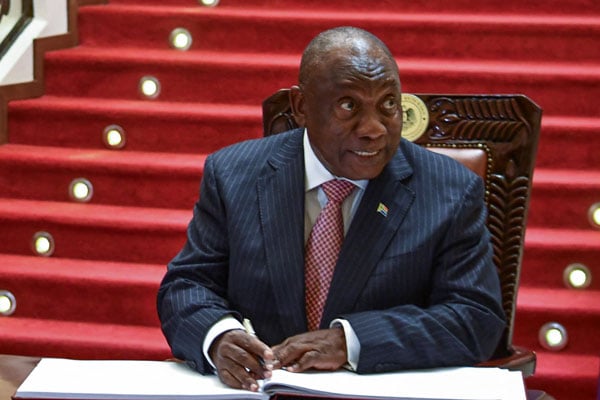The South African rand showed little movement in early trade on Friday, stabilising after sharp declines on Thursday, as political tensions between President Cyril Ramaphosa and the Democratic Alliance (DA)—his key coalition partner—began to unsettle investor confidence.
At 0947 GMT, the rand edged up 0.1% against the US dollar, trading at 17.8550, following heightened uncertainty sparked by Ramaphosa’s unexpected dismissal of the Deputy Minister of Trade, a DA member. No official explanation was provided for the decision, which has escalated tensions within the fragile multi-party government.
DA spokesperson Karabo Khakhau told Newzroom Afrika that President Ramaphosa has until 1330 GMT on Saturday to reverse the decision or remove three ANC members whom the DA alleges are involved in corruption. The ultimatum has added further strain to the ANC-DA partnership, a critical pillar of the newly formed Government of National Unity (GNU).
Analysts are warning that the standoff could hurt the local currency if it spirals into a broader coalition crisis. Volkmar Baur, an analyst at Commerzbank, said in a note that “this tension going into the weekend could weigh heavily on the local currency,” as investors become wary of political instability in Africa’s most industrialised economy.
South Africa’s financial markets are also awaiting key economic data releases next week, including May’s credit extension, money supply, trade balance, and budget balance figures—all of which could influence investor sentiment and monetary policy expectations.
Meanwhile, in the bond market, South Africa’s benchmark 2035 government bond took a hit in early trading. Yields rose sharply by 12.5 basis points to 10.08%, reflecting investor caution and increased risk perception amid the political uncertainty.
The rand, which has been one of the more volatile emerging market currencies in 2025, is particularly sensitive to domestic political developments and shifts in global risk appetite. The unresolved tensions between the ANC and DA are now being closely watched by markets as a test of the GNU’s durability.
While the rand has stabilised for now, further moves will likely depend on whether the political impasse can be defused or whether it escalates into a broader crisis within the ruling coalition.
